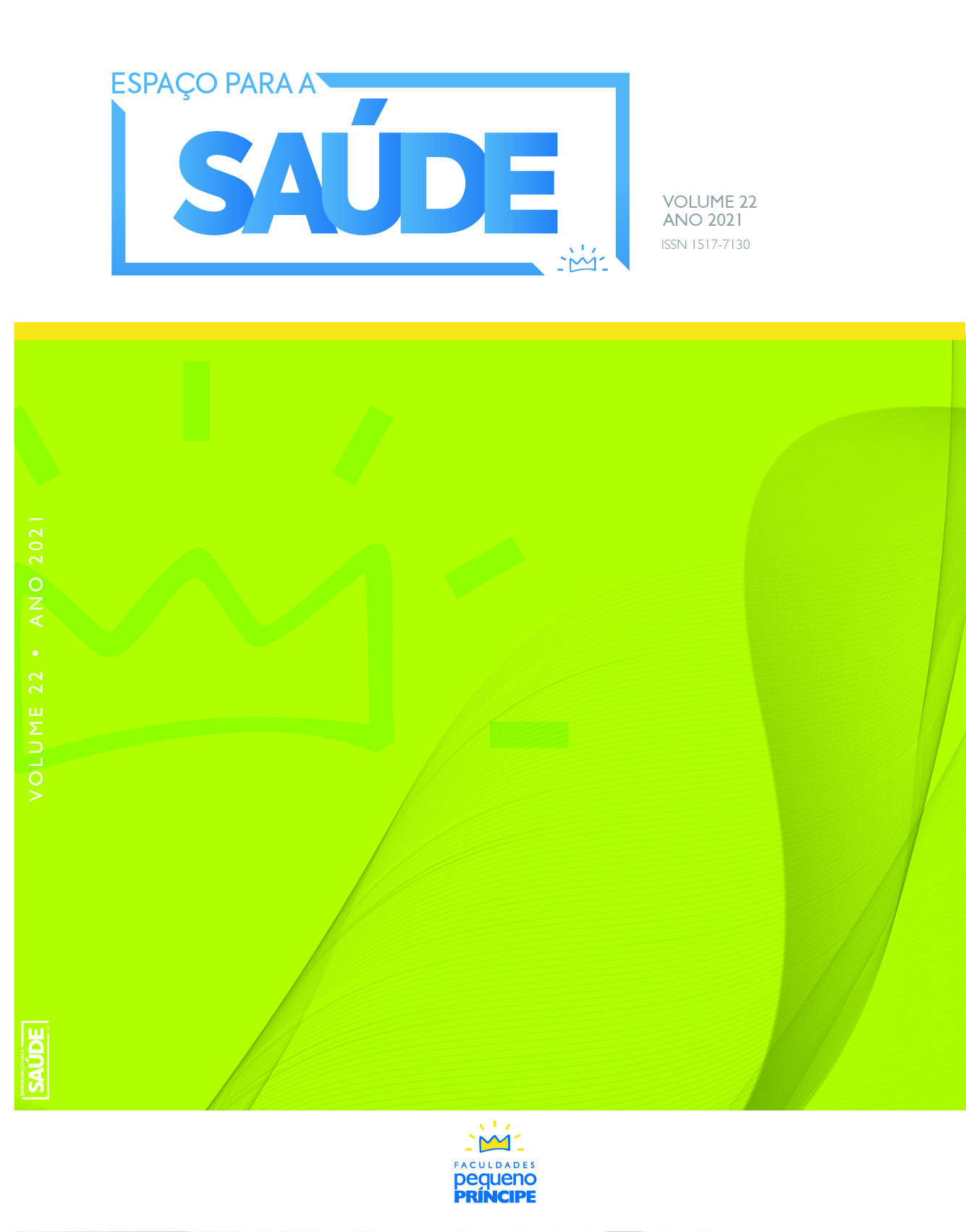Validation, translation and cross-cultural adaptation of clinical-educational research instruments: an integrative review
DOI:
https://doi.org/10.22421/1517-7130/es.2021v22.e736Keywords:
Validation Study, Translating, Adaptation, Surveys and QuestionnairesAbstract
Scales and questionnaires may take part in the screening, diagnosis, and follow up of several
medical conditions, therefore being very important in the clinical practice. To be used in a country other than the one of its origin, these instruments shall undergo a process of cultural adaptation, aiming to guarantee the same validity and reliability as the original instrument. Although there is no gold standard model to follow, four steps are essential and recommended for this process: translation, reverse translation, review by a committee of judges, and pretest. In this study, we aimed to identify the scientifically recognized processes carried out for the
validation of research instruments directed to Brazilian Portuguese. The articles were searched
in the PubMed database, using the descriptors validation studies AND translation AND adaptation AND cross-cultural AND Brazil. Sisxteen articles, published between 2017 and 2019, were selected for this review. The validation methodologies were varied, and each study presented complementary and particular methodological elements to the populations studied. The compilation of these methodologies allowed highlighting the common points that can be followed in the preparation of future research, trying to build a unified script that allows its universal use in the validation and cross-cultural adaptation of research instruments.
References
Bastos VCS, Carneiro AAL, Barbosa MSR, Andrade LB. Brazilian version of the Pediatric Functional Status Scale: translation and cross-cultural adaptation. Rev. bras. ter. intensiva. 2018 Jul-Sep;30(3):301-307
Borsa JC, Damasio BF, Bandeira DR. Adaptação e validação de instrumentos psicológicos entre culturas: algumas considerações. Paidéia (Ribeirão Preto). 2012 Dec;22(53):423-432.
Correa-Ribeiro R, Iglesias F, Camargos EF. Attitudes Toward Lesbians and Gay Men Scale: validation in Brazilian physicians. Einstein (Sao Paulo, Brazil). 2019 May;17(2):eAO4527.
Dalla Nora CR, Zoboli E, Vieira MM. Validação por peritos: importância na tradução e adaptação de instrumentos. Rev Gaúcha Enferm. 2017 Apr;38(3);e64851
Fiorin BH, Oliveira ERA, Moreira RSL, Filho BL. Cross-cultural adaptation of the Myocardial Infarction Dimensional Assessment Scale (MIDAS) to the Brazilian Portuguese language. Ciên. saúde coletiva. 2018 Mar;23(3):785-793.
Guillemin F, Bobardier C, Beaton D. Cross-cultural adaptation of heatlhrelated quality of life measures: literature review and proposed guidelines. J Clin Epidemiol. 1993 Dec;46(12):1417-1432.
Jungerman I, Toyota J, Montoni NP, Azevedo EHM, Guedes RLV, Damascena A, et al. Patient Concerns Inventory for head and neck cancer: Brazilian cultural adaptation. Ver. Assoc. Med. Bras. 2017 Apr; 63(4):311-319.
Lino CRM, Bruggemann OM, de Souza ML, Barbosa SFF, dos Santos EKA. Adaptação transcultural de instrumentos de pesquisa conduzida pela enfermagem do Brasil: uma revisão integrativa. Texto contexto – enferm, 2017;26(4):e1730017.
Lopes MIR, Tornai JB, Jeng FLM, Lopes BV, Mendes GAS, Oliveira MF, et al. Development of the Brazilian Portuguese version of the “Grading scale for idiopathic normal pressure hydrocephalus”: cross-cultural adaptation, reliability and validity. Arq. Neuro-Psiquiatr. 2018 Oct;76(10):692-696.
Maggi, F. A. Cross-cultural adaptation and validation of the International Cooperative Ataxia Rating Scale (ICARS) to Brazilian Portuguese. Arq. Neuro-Psiquiatr. 2018 Oct;76(10):674-684.
Medeiros R, Mattiello R, Corruble E, Sarria EE, Molski C, Brandão A. Cultural Validation of the Transplanted Organ Questionnaire (TOQ) for the Brazilian Population. Annals of hepatology, 2018 Jan-Feb;17(1):92-97.
Mendes KDS, Silveira RCCP, Galvao CM. Revisão integrativa: método de pesquisa para a incorporação de evidências na saúde e na enfermagem. Texto Contexto Enferm. 2008 Out-Dez;17(4):758-64
Obara AA, Alvarenga MS. Transcultural adaptation of the Antifat Attitudes Test to Brazilian Portuguese. Ciênc. saúde coletiva, 2018 May; 23(5):1507-1520.
Oliveira EF, Valério BCO, Cavalcante V, Urbano JJ, Silva AS, Polaro MN, et al. Quantitative Myasthenia Gravis Score: a Brazilian multicenter study for translation, cultural adaptation and validation. Arq. Neuro-Psiquiatr. 2017 Jul;75(7):457-463.
Pernambuco L, Espelt A, Junior HVM, de Lima KC. Recomendações para elaboração, tradução, adaptação transcultural e processo de validação de testes em Fonoaudiologia. CoDAS. 2017 Jun;29(3):e20160217.
Poletto PR, Gobbo DKP, Gotfryd AO, Catania SN, Sousa DC, Pereira SBS. Cultural adaptation, reliability and validity of Japanese Orthopaedic Association Back Pain Evaluation Questionnaire to Brazilian Portuguese. Einstein (São Paulo, Brazil). 2017 Sep;15(3):313-321
Pratesi CP, Häuser W, Uenishi RH, Selleski N, Nakano EY, Gandolfi L, et al. Quality of Life of Celiac Patients in Brazil: Questionnaire Translation, Cultural Adaptation and Validation. Nutrients. 2018 Aug;10(9):1167.
Wollmann L, Hauser L, Mengue SS, Agostiho MR, Roman R, Feltz-Cornelis CMVD. Cross-cultural adaptation of the Patient-Doctor Relationship Questionnaire (PDRQ-9) in Brazil. Rev. Saúde Pública. 2018;52:71.
Downloads
Published
How to Cite
Issue
Section
License
Copyright (c) 2021 Espaço para a Saúde

This work is licensed under a Creative Commons Attribution 4.0 International License.
Authors who publish in this journal agree to the following terms:
- Authors grant the journal the copyright, with the work simultaneously licensed with Creative Commons CC BY, which allows the sharing of work with recognition of authorship and initial publication in this journal.
- Authors are authorized to assume additional contracts separately, for non-exclusive distribution of the version of the work published in this journal (e.g., to publish in an institutional repository or as a book chapter), with authorship recognition and initial publication in this journal.
- Authors are permitted and encouraged to publish and distribute their work online (e.g., in institutional repositories or on their personal page) at any point before or during the editorial process, as this can generate productive changes, as well as increase the impact and the citation of the published work (See The Effect of Free Access).






